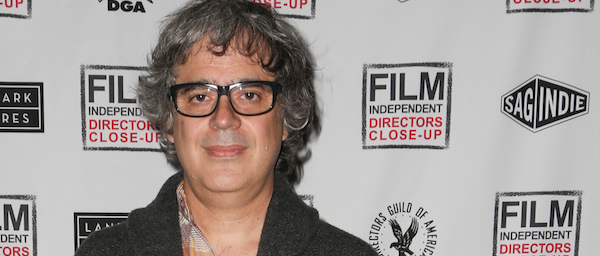Member Spotlight: Writer-Director Miguel Arteta on Being an Observer and Getting Back to His Roots

Name: Miguel Arteta
Discipline: Writer-director
Film Independent Member since: 1997
What first inspired you to want to become a filmmaker?
Initially it was the language barrier—I come from Latin America. I didn’t speak English when I came to the United States. I was 16. My English was pretty bad and I hid at the movies, and it was a visual medium and I fell in love with it. I picked up a camera at 17 and very quickly I felt at home. I was very lucky.
How did you initially get involved with Film Independent?
I think, soon after Star Maps or Chuck & Buck. Dawn Hudson [then-Film Independent Executive Director] invited me and I spent three wonderful years on the board [of directors].
What does “being independent” in filmmaking mean to you?
It means adding your own particular and original point of view and sharing that in an interesting way with the rest of the world.
How much has being a kid from Puerto Rico, moving to this country, not speaking English or knowing the culture laid the foundation for your approach to storytelling?
A lot. When you cross cultures and languages you’re forced to be an observer of behavior and body language and the culture. You’re an outsider looking in. I think that’s really imperative to being a filmmaker, to really honor your observations.
Reading about your story reminded me of the John Sayles movie The Brother from Another Planet.
Beautiful movie. His work really influenced me and he was very kind to meet me—he met me at a Sbarro’s in Times Square when I was 25 years old, gave me a big pep talk. It’s so nice when people like that take the time to try and inspire younger filmmakers.
I heard you say one of the best pieces of advice you ever got was from an old teacher who said filmmaking is not an art; filmmaking is not commerce; it’s a damn hybrid of the two. What advice would you give to young filmmakers on combining the two?
I think that you just have to be realistic. Movies cost a lot of money, even in the digital age, when you can make them for very little. They still cost time and money, and the energies of large groups of people. You can’t just go in thinking that people ought to just give all this energy and money to you just for you to express your art without giving something back for that money and effort. Similarly, you shouldn’t do anything to get that money and support. You need to have a backbone, and you need to respect the fact that it’s an unbreakable marriage between commerce and art.
You seem to touch on themes very close to your heart. How important has that been to your success as an artist?
It’s been the only way I know how to do it. I’ve been very, very blessed that I’ve been able to pursue stories that are meaningful to me. I have done a lot of television, and also some commercials and I have tested the grounds. And when you get away from something relevant to you it gets hard to do a good job, for me. I’m not a technical director. I’m a director that deals with feelings, emotions and just an attitude to how I see the world.
What are you working on now and what excites you about it?
I’m writing a little dark independent movie. Going back to my roots. And I’m very excited about it. I haven’t written since I co-wrote with Michael Cera, Youth in Revolt, so this is very exciting for me and it’s something that will be deeply personal. So I’m going to go for broke and make a tiny, no-budget movie. My friends Alia Shawkat and Michael Cera, we’re all looking at maybe doing this together, and Alia and I have been meeting [about it]. So I have a little bit of a partner-in-crime, and that really helps; it’s really fun.
JB Bogulski/Film Independent Blogger



